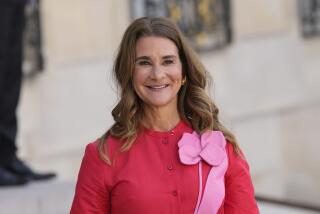Stella McCartney to take full control of brand, buying out Kering
Stella McCartney is ready to fly solo. After 17 years in partnership with Kering, she’s decided to buy back the French giant’s 50 percent stake in her brand in a bid to safeguard her name for the future and build an independent business.
An announcement from Kering and Stella McCartney is expected today.
Last month McCartney, who holds the other 50 percent stake, confirmed she was mulling her future with Kering: She has a long-standing clause in her contract giving her the option to re-purchase Kering’s stake, exercisable by March 31 of this year.
In an exclusive interview with WWD, McCartney said buying out Kering and developing a stand-alone business was an opportunity she couldn’t turn down. Her relationship with Kering, she added, will steam ahead: McCartney plans to remain a board member of the Kering Foundation and will continue to collaborate with the French luxury giant on sustainability in fashion.
Asked why she wanted to separate from Kering, her company’s cofounder in 2001 (through the former Gucci Group division), McCartney said that was a difficult question to answer.
“I have had an incredible relationship with Kering, and first and foremost with the Pinault family, whom I consider to be great friends. I’m incredibly close to them. We had such a successful business together, an incredible partnership. We never had any hiccups,” said McCartney during an interview from her airy new offices near Westfield London.
In the statement released Wednesday evening after the Paris and London stock markets closed, François-Henri Pinault, chairman and chief executive officer of Kering, said it was time for McCartney to move to the next stage.
“Kering is a luxury group that empowers creative minds and helps disruptive ideas become reality. I am extremely proud of what Kering and Stella McCartney have accomplished together since 2001,” he said, adding that the designer and her team brought far more than business to Kering.
“Stella knows she can always count on my friendship and support,” he said. Both parties have promised a “smooth transition” in order to maintain the brand’s momentum in the market.
McCartney said she and Kering had “worked for a long time” exploring their future options “and this is where it’s panned out. It has been a dream to work with them. ”
As reported last month, WWD asked Pinault whether it would make sense for Kering to be a minority shareholder in Stella McCartney’s company, and he said absolutely not. Either they remain 50/50 partners, or Kering would sell its stake completely.
McCartney declined to comment on how she plans to finance the buyback, although it is understood her famous father Paul McCartney will not bankroll any deal. She added there were no plans for an initial public offering and no plans to take on a new business partner right now, although industry sources say that prospective investors have been circling and McCartney has also been conducting exploratory talks.
According to documents filed at Companies House, the official register of U.K. businesses, turnover at Stella McCartney’s U.K. division rose 31 percent to 41.7 million pounds in the 12 months to Dec. 31, 2016. Profits in the period were up 42.5 percent to 7 million pounds.
Those numbers refer solely to Stella McCartney’s U.K. business and the brand’s worldwide licensing revenue. They do not take into account wholesale sales or turnover from the brand’s directly operated stores outside the U.K. The collections are available in more than 100 countries at wholesale, and through 51 freestanding stores worldwide.
Over the years, McCartney had worked closely with Kering on building values around environmental sustainability and best practice, and has been a promoter of Kering’s five-year partnership with London’s Centre for Sustainable Fashion to support eco-friendly practices and innovation in the fashion industry.
Last month, Kering and London College of Fashion revealed the creation of the first open-access digital course in luxury fashion and sustainability called “Fashion & Sustainability: Understanding Luxury Fashion in a Changing World.”
Stella McCartney was also the first Kering brand to publish an annual environmental profit and loss account. The EP&L measures the impact of the business and supply chain on the environment.
The company registered a “loss” of 6.97 million euros, with 62 percent of that figure concentrated in the raw material production stage. The overall goal of the company is to whittle its losses down as much as possible.
McCartney said that going forward she will continue to publish an EP&L and work alongside Kering on other environmental initiatives.







